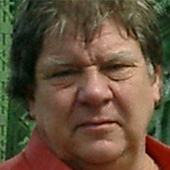
Professor William H. Dutton
Senior Fellow, Advisory Board Member
Bill Dutton was the OII’s Founding Director, a Fellow of Balliol College and the first Professor of Internet Studies at Oxford University.

The Web is the largest human information system construct. It is both a technical structure engineered on the basis of open standards and open protocols that are agreed internationally, and a social construct created by the millions of people and organisations who fill it with content, and governments who create policies and regulations to control what is and isn’t permitted to appear on the Web to varying degrees. Both technically and socially, the Web is a very complex system that is growing at an astonishing rate.
Technological developments can be extrapolated to forecast the technical underpinnings of the next generation of the Web, but it is impossible to predict how the Web will evolve as new technologies become available because it is very difficult to predict human and organisational interactions over time and what people will and won’t do as the Web develops. We are currently living in a Web2 world (the so-called second generation Web), in which the Web is enabling the growth of social networks on the Internet and a second wave of ‘dot-com’ businesses. Semantic Web, or Web3, technology is just beginning to roll out. We know it will have a significant impact but it is harder to predict what the social and business impacts will be.
Web Science brings together computer scientists and engineers, social scientists and policy makers to study complex information systems as personified by the Web. In other words, Web Science is the study of decentralized information systems. Web Science encompasses science, engineering, social understanding and capacity building. The aim of this proposal is to establish networks of researchers from different technical and social science research disciplines to begin to develop a Web Science research agenda through the exchange of PhD students and collaborative workshops, the results of which will be disseminated through detailed review papers.
This project was supported by the Engineering and Physical Sciences Research Council (EPSRC), grant number: EP/FO/3701/1

Senior Fellow, Advisory Board Member
Bill Dutton was the OII’s Founding Director, a Fellow of Balliol College and the first Professor of Internet Studies at Oxford University.

Senior Fellow
Jonathan Zittrain is the George Bemis Professor of International Law at Harvard Law School and the Harvard Kennedy School of Government, and Professor of Computer Science at the Harvard School of Engineering and Applied Sciences.

Former Visiting Research Fellow
Yorick Wilks has interests in artificial intelligence and the computer processing of language, knowledge and belief. His current research focuses on the possibility of software agents having identifiable personalities.

Massachusetts Institute of Technology

University of Southampton